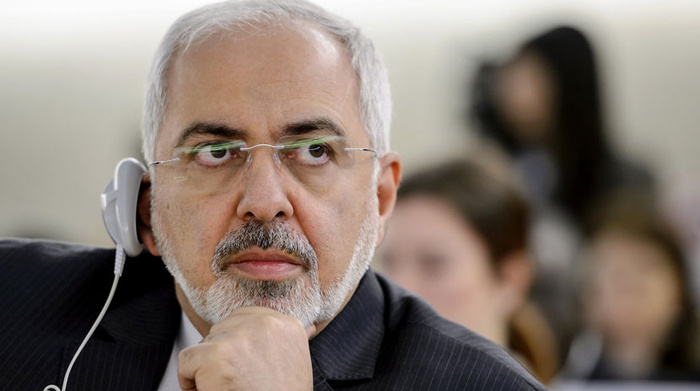We’re ‘very close’ to a nuclear deal

Iranian Foreign Minister Mohammad Javad Zarif said the U.S. and Iran have nearly reached a nuclear arms deal, though there are still details left to be negotiated.
“We believe we are very close, very close, but we could be very far,” Zarif said in an exclusive NBC News interview with Ann Curry, where the minister sought to promote the pending deal and rebuke Israeli Prime Minister Benjamin Netanyahu’s portrayal of it.
The Israeli leader has been on a media blitz in the U.S. for the last week in an attempt to derail the deal. On Tuesday, Netanyahu addressed a joint session of Congress, arguing that a bad deal with Iran could prompt a “nuclear nightmare” and that Iran was a dangerous regime bent on obliterating the Jewish people.
Zarif dismissed Netanyahu’s remarks saying he was engaging in a “popularity contest” in the United States and argued that Iran doesn’t want a nuclear bomb, despite Netanyahu’s “hysteria.”
“We never had a bomb, we will never have a bomb, we are not looking to a have a bomb, we do not believe a bomb is in our best interest,” he told Curry. Iran has been developing their nuclear program for decades, despite international and United Nations attempts to deter them, but they’ve long maintained that it’s solely for energy and research purposes; Israeli leaders pointed to Iran’s anti-Israeli rhetoric (namely, a vow to annihilate the country) as proof that even a peaceful energy program is a threat
“We should take what the foreign minister has to say with a very large grain of salt,” Israeli Ambassador Ron Dermer said on Wednesday’s msnbc’s “Andrea Mitchell Reports,” pointing to Zarif’s honoring the grave of a Hezbollah leader accused of killing hundreds.
Dermer, like Netanyahu, stressed that the current deal would “pave Iran’s path to the bomb” particularly as certain restrictions are lifted over time, but Zarif pushed back fervently.
“We are not about to be free to develop nuclear weapons any time in the future. We don’t want to and we have an obligation not to,” he said, saying there is no part of the deal that would allow it. “Whenever these specific limitations end, Iran will be bound by international obligations like any other country, like any other country, and it will be monitored, so there is no sunset clause.”
Zarif insisted that fears of Iran’s nuclear ambitions were misplaced, saying the country is only interested in nuclear energy.
“We are prepared to go the extra mile in order to convince the international community our nuclear program is purely peaceful,” he said, later adding that the country has had enough material to build “many bombs” for over a decade but hasn’t done it.
He admitted that neither the U.S. nor Iran really trusts the other: “We’re not asking anyone to trust us and we’re not going to trust others. We’re asking for verification and we’re accepting verification.”
But Dermer said the deal doesn’t block Iran from obtaining weapons and urged people to heed Israel’s warnings.
“We just have a disagreement here, we agree with the United States, we both want to prevent Iran from obtaining a nuclear weapon, but the question is does this deal block Iran’s path to the bomb?”
Mark Regev, a spokesman for the Israeli prime minister, also took issue with comments made by Zarif in his NBC News interview, in which the Iranian foreign minister suggested Netanyahu was supporting al-Nusra, an al Qaeda affiliate, by “allowing terrorists to come take refuge” in Israeli hospitals.
“It’s not correct,” Regev told NBC News on Wednesday, adding that Zarif “often says things that are untrue.” “Prime Minister Netanyahu visited the field hospital which Israel opened to treat people caught in the war, to treat women, children and civilians. People were butchered by the Assad regime, which is supported by Iran and Hezbollah.”

